Maintaining your car’s engine oil is important because poor or no maintenance may damage your vehicle. Delaying oil changes, making the wrong type of oil selection, or ignoring service notifications can reduce the value of your car and its performance quality. A regular engine oil change service can help prevent many of these issues. The right oil maintenance habits could prevent many repair costs and car breakdowns. This guide outlines the key mistakes to avoid when changing your car’s engine oil and provides tips to help you maintain your car engine health.
Using the Wrong Type of Engine Oil
All engine oils are not the same, and all cars will need a specific type of oil recommended by the manufacturer for long-term use. The wrong choice of oil may lead to a shortage of lubrication, excessive engine wear, a decline in performance, and, over time, catastrophic damage. Here is why the correct choice of oil is really important:
- Right Thickness: Thicker oil or overly thinner oil results in lubrication problems, leading to high levels of friction and heating.
- Synthetic Or Conventional: Certain engines are able to perform much better with synthethic oil. This increases fuel efficiency while producing less wear.
- Guidelines by the Manufacturer: Always check the manufacturer’s guidelines to ensure the oil selected will go perfectly with the engine.
A professional oil change service guarantees that your vehicle receives the appropriate oil, which helps avoid costly damage and engine problems in the future.
Skipping or Delaying Oil Changes
As time progresses, your engine oil becomes stale and loses its capacity to lubricate, guard, and cool essential parts. Not changing the oil or postponing it increases the amount of friction, overheating, and sludge buildup, which can damage the engine. Risks of neglecting oil changes include the following:
- Decreased responsiveness in the engine and reduced performance overall
- Burning more cash because of the increased fuel usage
- Higher chances of overheating, wear and tear on the engine, and failure ultimately
- The buildup of damaging residue that can block parts of the engine
Sticking to the recommended schedule provided in your manual regarding oil changes can ensure that the car performs optimally while also saving you on costly repairs. Regular engine oil changes improve the life of the vehicle, help increase the fuel economy, and enable the vehicle to operate without issues.
Overfilling or Underfilling Engine Oil
Overfilling with oil or not putting in enough is just as bad as using the wrong oil type, due to the potential harm it can cause the engine from poor lubrication. Understanding how much oil is too much or too little is important for having an engine perform optimally. Here’s why:
- Overfill: A buildup of excess oil can lead to increased pressure over time, which results in the engine developing leaks and damage the seals.
- Underfill: Increasing friction, overheating, and excessive wear and tear can be caused by insufficient oil levels.
Performing dipstick checks is a simple way to ensure that levels are within an acceptable range. If in doubt, consulting an engine oil change specialist is a good way to solve the problem.
Not Replacing the Oil Filter
Your oil filter prevents dirt and debris from flowing into the engine. However, your oil filter can get clogged over time, which can reduce the oil flow. A neglected oil filter can lead to:
- Increased Engine Wear: Premature engine wear could lead to component damage.
- Overheating Issues: Heightened friction due to inadequate lubrication can lead to overheating.
- Sludge and deposit buildup: Dirty oil leads to thick sludge that can harm the engine.
- Reduced Engine Performance: Poor engine filtration can decrease fuel consumption and functionality.
If you ever get an engine oil change, switch the oil filter. Clean oil filters increase lubrication, extend the life of the machinery, and decrease the need for expensive repairs.
Ignoring Oil Leaks and Warning Signs
Being able to see a small oil leak means immediate action needs to be taken. Ignoring could lead to overspending and significant trouble down the line. Common signs of oil leaks include:
- A puddle or some spots of oil are placing themselves under the car
- A strong smell of burning oil in and outside the vehicle
- Oil levels are always on the low side, regardless of how often you refill them
- The engine makes strange noises while performing simple tasks
If these warning symptoms remain unchecked, the engine risks overheating and wearing down, or worse, breaking down completely. It’s important to get the engine inspected before things escalate any further. Routine engine oil service includes checking for any leakage to save money on repairs while enhancing the vehicle’s performance.
Keep Your Engine Running Smoothly
Retaining proper engine oil is necessary to keep your vehicle in working condition. The primary offenders are not changing the oil, using incorrect oil, overfilling, underfilling, neglecting the oil filter, and not repairing any leaks. You can avoid these blunders by booking regular engine oil change services and looking after your oil filter, guaranteeing that your engine functions properly and lasts as long as possible. In case of doubt, always follow the manufacturer’s instructions and consult a specialist.
FAQs
How can I tell if I’m using the wrong engine oil?
Check the owner’s manual for the type of oil that you should use. This avoids knocking sounds, slow acceleration, exhaust smoke, and low fuel economy; you should change the oil as described in the manual to help the vehicle last longer.
What happens if I skip or delay my oil change?
If a scheduled oil change is missed, sludge buildup, overheating, increased friction, and general engine tear and wear could result. All these could lead to low performance, low fuel efficiency, and even damage to the engine, which would be a waste of money.
How often should I change my engine oil?
It is recommended to change the engine oil every 5000 to 7500 kilometers. Older engines with above average performance may require more frequent oil changes. As always, check the owner’s manual.
Can my car get damaged from overfilling oil?
Overfilling oil can result in leaks, seal damage, and frothing, which increases the inefficiency of lubrication systems. This can eventually lead to overheating, wear and tear on the engine, and performance problems. A proper oil change for the engine oil helps reduce this issue.
How do I check for engine oil leaks?
Check your dipstick for unusual drops in oil level, inspect for oil spots on the ground, and burning smells or smoke coming from the exhaust. In addition, detect changes in the required engine oil change service intervals, which would suggest a malfunction in the automobile.

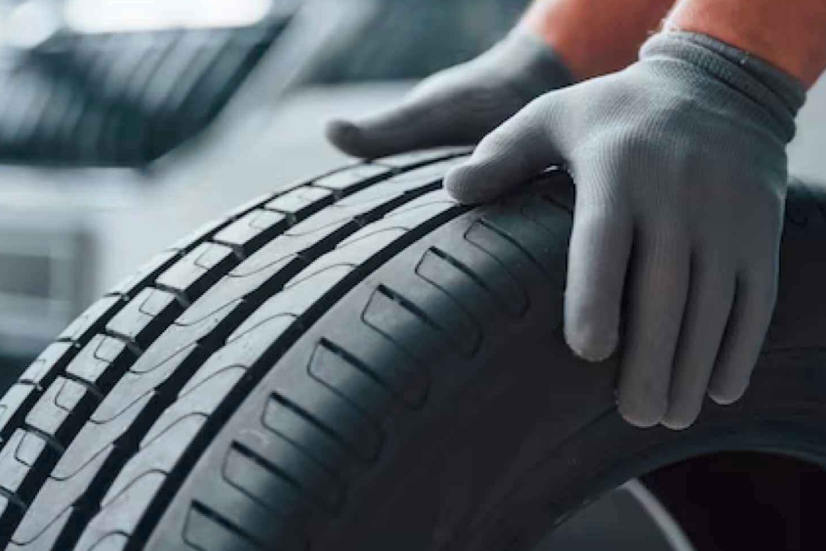 10 Proven Tips to Make Your Car Tyres Last Longer
10 Proven Tips to Make Your Car Tyres Last Longer The Advantages of Choosing Paintless Dent Repair
The Advantages of Choosing Paintless Dent Repair Rolls-Royce – Most Common Faults and How to Keep Yours in Perfect Condition
Rolls-Royce – Most Common Faults and How to Keep Yours in Perfect Condition Bentley – Most Common Faults and How to Prevent Them
Bentley – Most Common Faults and How to Prevent Them 5 Proven Ways to Remove Tree Sap From Your Car Without Damaging the Paint
5 Proven Ways to Remove Tree Sap From Your Car Without Damaging the Paint Discover the Most Typical Issues with Lexus Cars
Discover the Most Typical Issues with Lexus Cars What are the Common BMW Issues and How to Fix Them?
What are the Common BMW Issues and How to Fix Them?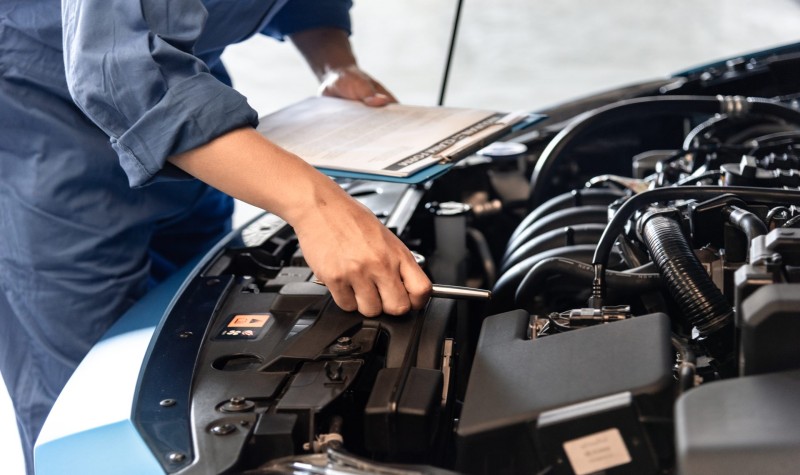 Engine Seized or Locked Up? Here’s What You’re Really Dealing With
Engine Seized or Locked Up? Here’s What You’re Really Dealing With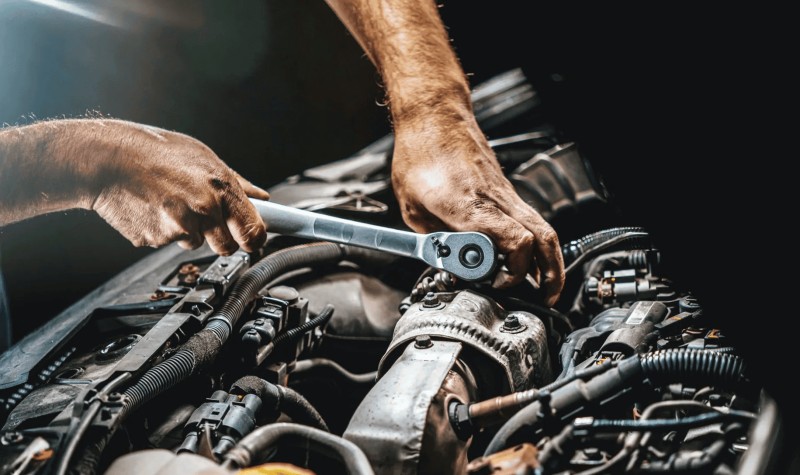 Is It Safe to Drive with Reduced Engine Power?
Is It Safe to Drive with Reduced Engine Power? What Type of Car Paint Protection Is Best in Abu Dhabi? | Ultimate Guide
What Type of Car Paint Protection Is Best in Abu Dhabi? | Ultimate Guide How Does Ceramic Coating Protect Your Car’s Paint?
How Does Ceramic Coating Protect Your Car’s Paint? 5 Most Common Oil Mistakes That Might Ruin Your Car
5 Most Common Oil Mistakes That Might Ruin Your Car When Should You Replace Your Tires? Warning Signs You Shouldn’t Ignore
When Should You Replace Your Tires? Warning Signs You Shouldn’t Ignore Common Range Rover Problems and How to Fix Them
Common Range Rover Problems and How to Fix Them How Weather Conditions Affect Your Car Battery and How to Protect It?
How Weather Conditions Affect Your Car Battery and How to Protect It?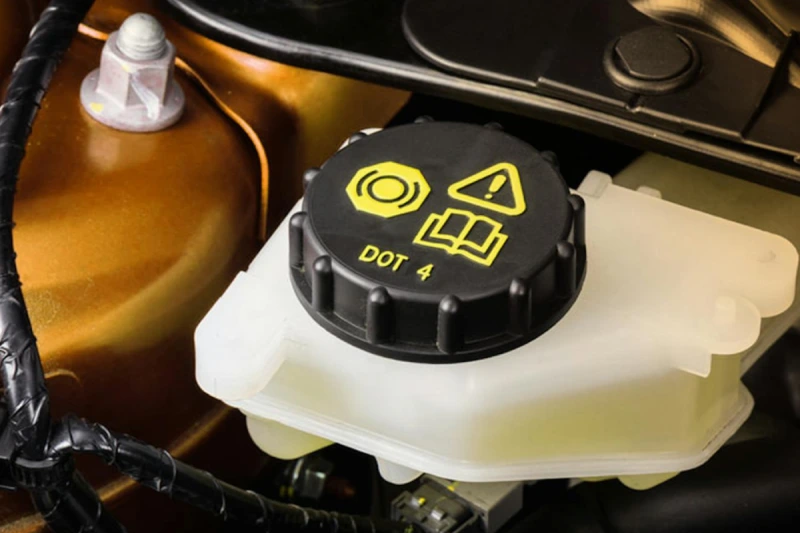 Why Brake Fluid is Essential for Your Car’s Safety in Ras Al Khaimah
Why Brake Fluid is Essential for Your Car’s Safety in Ras Al Khaimah Mercedes-Benz Engine Repair: Common Issues and How to Fix Them
Mercedes-Benz Engine Repair: Common Issues and How to Fix Them Top Signs Your Car AC Needs Immediate Repair in Abu Dhabi
Top Signs Your Car AC Needs Immediate Repair in Abu Dhabi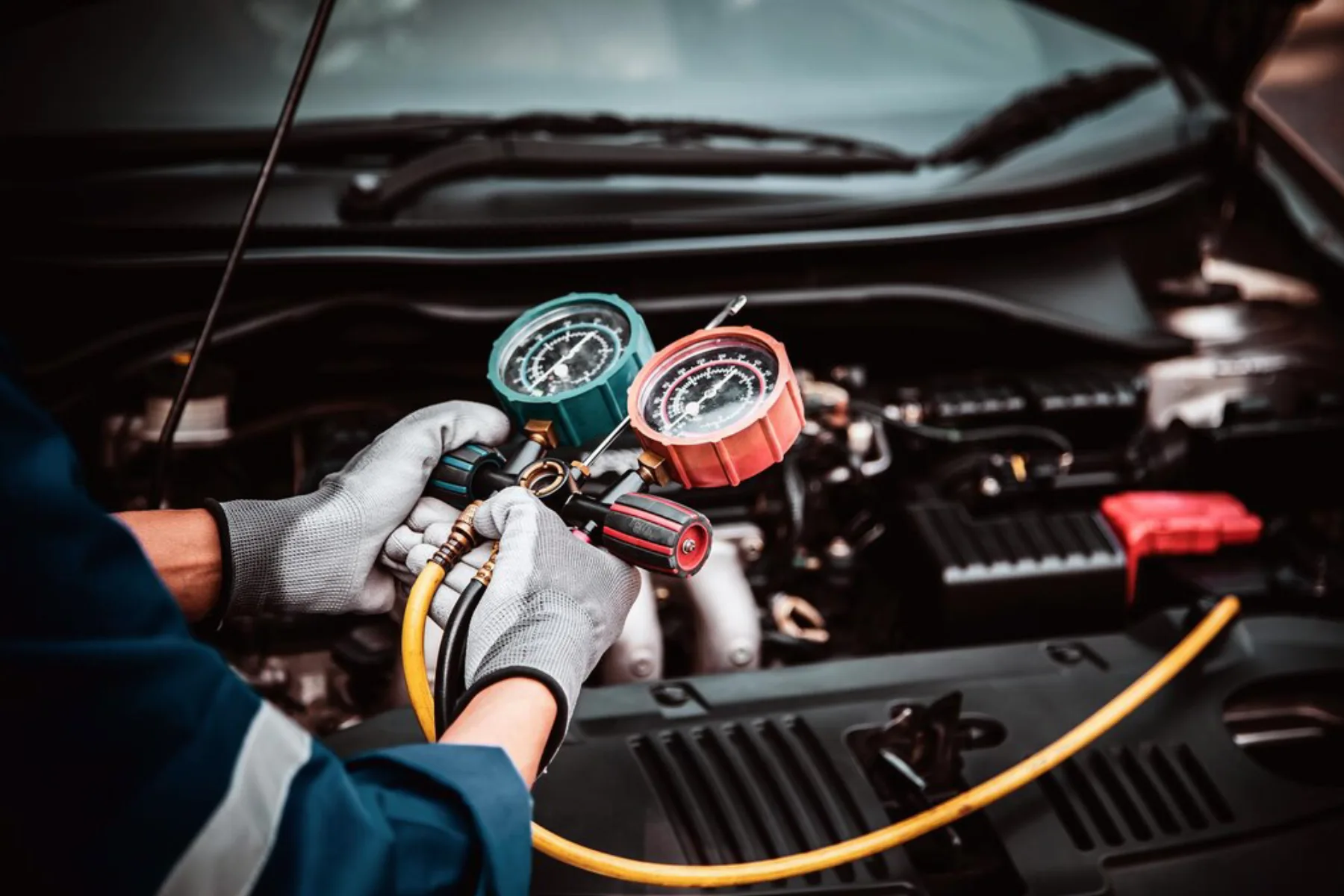 The Ultimate Guide to Car AC Repair: Everything You Need to Know
The Ultimate Guide to Car AC Repair: Everything You Need to Know How to Find a Reliable Car Garage Near Me in Abu Dhabi
How to Find a Reliable Car Garage Near Me in Abu Dhabi Why Car Detailing is Essential in Ras Al Khaimah
Why Car Detailing is Essential in Ras Al Khaimah Windscreen Repair vs. Windscreen Replacement: Which One Do You Need?
Windscreen Repair vs. Windscreen Replacement: Which One Do You Need? Top Signs Your Car Battery Needs to Be Replaced
Top Signs Your Car Battery Needs to Be Replaced The Importance of Regular Tire Maintenance: Tips and Tricks
The Importance of Regular Tire Maintenance: Tips and Tricks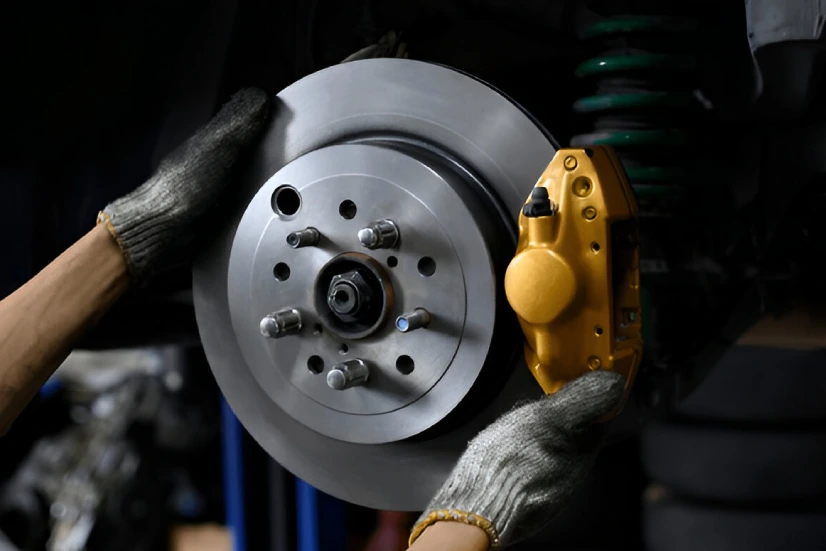 Understanding Brake Issues: When to Repair or Replace Your Brakes
Understanding Brake Issues: When to Repair or Replace Your Brakes What Can One Expect During a Full Vehicle Inspection?
What Can One Expect During a Full Vehicle Inspection?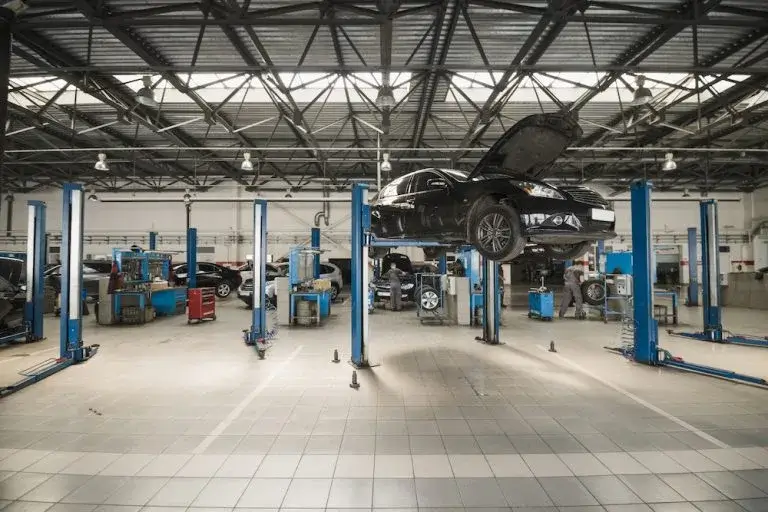 Top-Rated Car Garages in Ras Al Khaimah: A Comparative Guide
Top-Rated Car Garages in Ras Al Khaimah: A Comparative Guide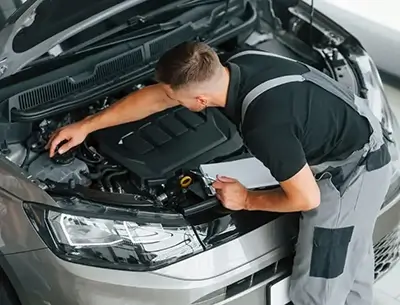 5 Common Engine Problems and How to Fix Them: A Guide for Car Owners
5 Common Engine Problems and How to Fix Them: A Guide for Car Owners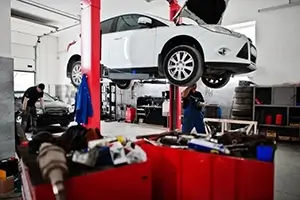 Signs You Need to Take Your Car to the Mechanic
Signs You Need to Take Your Car to the Mechanic Exploring Unusual Smells in Cars: A Guide to Identifying and Resolving Odors
Exploring Unusual Smells in Cars: A Guide to Identifying and Resolving Odors Bespoke Care for Your Range Rover: Understanding the Importance of Regular Service
Bespoke Care for Your Range Rover: Understanding the Importance of Regular Service Quick Tips for Finding the Best Car Mechanic Near You
Quick Tips for Finding the Best Car Mechanic Near You Choosing the right car repair workshop: Factors to consider
Choosing the right car repair workshop: Factors to consider Expert Car Mechanics Near Me: How to Identify Skill and Experience
Expert Car Mechanics Near Me: How to Identify Skill and Experience The Benefits of Regular Car Servicing for Optimal Performance and Safety
The Benefits of Regular Car Servicing for Optimal Performance and Safety Trusted Car Garages Near Me: How to Avoid Shoddy Repairs
Trusted Car Garages Near Me: How to Avoid Shoddy Repairs Preventing Costly Repairs with Routine Car Maintenance and Inspections
Preventing Costly Repairs with Routine Car Maintenance and Inspections Navigating the Car Repair Industry: How to Find Honest and Affordable Services
Navigating the Car Repair Industry: How to Find Honest and Affordable Services Understanding the Basics of Car Maintenance and Repair for Vehicle Owners
Understanding the Basics of Car Maintenance and Repair for Vehicle Owners Why regular car servicing is crucial for long term vehicle health?
Why regular car servicing is crucial for long term vehicle health?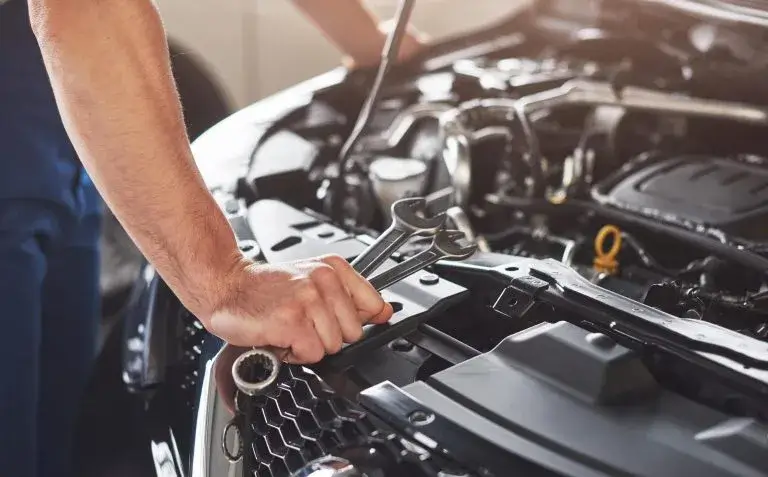 Maximizing the Lifespan of Your Vehicle with Routine Car Maintenance
Maximizing the Lifespan of Your Vehicle with Routine Car Maintenance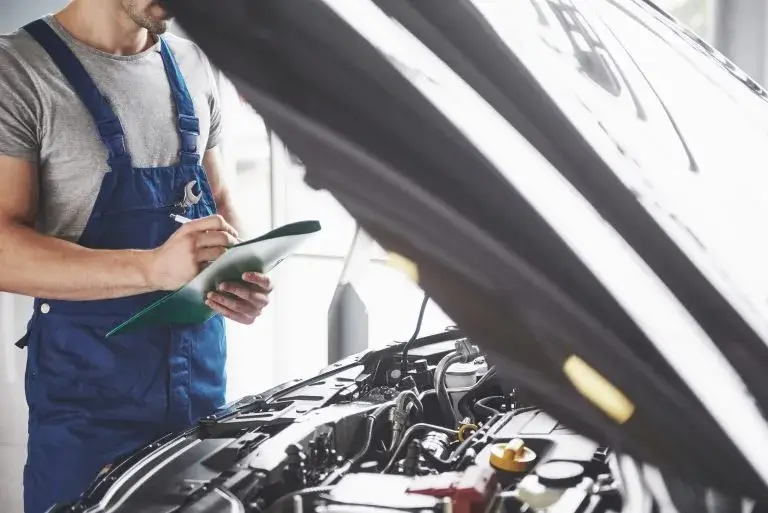 The importance of Pre-purchase car inspections: Don’t buy a lemon
The importance of Pre-purchase car inspections: Don’t buy a lemon